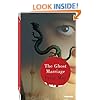|
|
The Firemaker
THE FIREMAKER opens the lid on a
Pandora's Box of genetic food engineering and gives us
a terrifying glimpse of the doomsday scenario that
could await if the scientists get it wrong.
Set in contemporary China, it
features Beijing detective Li Yan, and American
pathologist, Margaret Campbell, as they track the
killer of a government scientist whose horribly burned
corpse is found smouldering in a Beijing park.
She is a forensic pathologist from
Chicago on a six-week lecture trip to the University
of Public Security in Beijing. She has fled to China
to escape from a broken heart and a shattered life. He
is a newly promoted detective who finds himself
walking in the footsteps of an uncle who was a near
legend in the Beijing police force.
On the night that the scientist is
burned to death, there are two other murders in the
city. All three are inextricably, but inexplicably,
linked.
Li's uncle, now retired, prefers to
play chess in the park and dispense his wisdom in
Chinese riddles, and the young detective is forced
reluctantly to turn for help to the experienced
Margaret Campbell whose expertise is burn victims.
From the moment she conducts the
autopsy on the government scientist, her future and
Li's become as inextricably linked as the murders they
are investigating. And as, together, they peel back
layer upon layer of obfuscation, the terrible truth
they finally uncover sets them on a terrifying course
they could never have imagined.
Extract
Prologue
The laughter of the children
peals through the early morning quiet like bells
ringing for the dead. Hair straight, dark and
club-cut, bobs above the frilled white and pink of
the girls' blouses as they run along Ritan Park's
dusty paths in the gloomy green Beijing dawn.
Their dark oriental eyes burn with the fire of
youth. So much life and innocence a breath away
from that first encounter with death, and the
taint of immortality that will stain their lives
forever.
Their mother had asked the
baby-sitter, a dull country girl, to take the
twins to the park early, before kindergarten. A
treat in the cool of the morning, before the sun
would rise and bleach all colour and substance
from the day.
An old man in Mao pyjamas and
white gloves practises tai chi among the trees,
slow-motion graceful, arms outstretched, one leg
so slowly lifting, exerting a control of his body
that he has never had of his life. The girls
barely see him, drawn by the strange sounds coming
from around the next corner. They run ahead in
breathless anticipation, ignoring the calls of the
baby-sitter asking them to wait. Past a group of
people who stand reading sheets of poetry strung
between the trees; past a bench with two
grey-haired old ladies in carpet slippers and grey
cardigans who shake their heads at such a wanton
display of free spirits. Even had they been
allowed, in their day bound and bleeding feet
would have put a stop to it.
The sounds that draw them, like
strange music, grow louder as the children turn
into a large paved circle bound by a high wall.
They stop and stare in open-mouthed amazement.
Dozens of couples - young, middle-aged, elderly;
civil servants, office workers, army officers -
shuffle in bizarre embrace. All heads are turned
for guidance to the steps of an ancient
sacrificial altar in the centre of the circle. At
the top of the steps, where once blood was spilled
as an offering to the sun, a young couple all in
black confidently demonstrate the steps of the Cha
Cha in time to music scratching out from an old
gramophone.
There is such joy in all their
expressions, that the children stand for a moment
entranced, listening to the alien melody and
rhythms of the music. Their baby-sitter catches
them up at last, flushed and breathless. She
stops, too, and gawps bewildered at the dancers.
The city is such a strange, unfathomable place.
She knows she could never settle here. From the
far side of the circle she sees men wielding long,
silver-bladed swords in slow, deliberate acts of
contained aggression, slicing the air in grotesque
parody of some mediaeval battle. The dancers
ignore them, but the baby-sitter is afraid, and
she shoos the reluctant children down a path, away
from the people and the noise.
But now another distraction.
Smoke filtering through the leaves, descending
like a mist, thick and blue. A strange smell, the
baby-sitter thinks, like meat on an open fire. And
then she sees the flicker of flames through the
green gloom and is gripped by a sudden desperate
foreboding. The children have run ahead again,
scrambling up a dusty path among the trees, and
ignore her calls to wait. She runs after them, a
shady pavilion that overhangs the lake dropping
away to her left. The wailing call of a
single-stringed violin reaches her as she crests
the rise through the trees and follows the
children into a clearing where the flames lick
upwards from a huddled central mass. The girls
stand staring curiously. The baby-sitter stops.
She feels the heat on her face and shades her eyes
from the glare, trying to see what it is that
burns so fiercely. At its heart something moves.
Something strangely human. The scream that comes
from the nearest girl somehow sharpens the
baby-sitter's focus, and she realises that what
moved was a charred black hand reaching out
towards her.
|
 information for
journalists
information for
journalists

CHINA THRILLERS
NOW
ON KINDLE
|


















